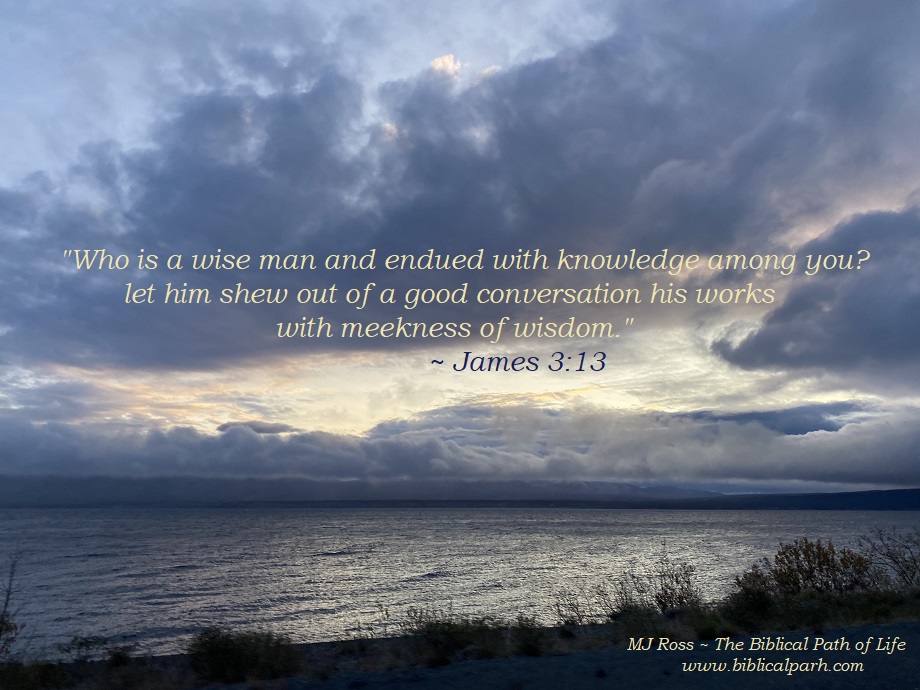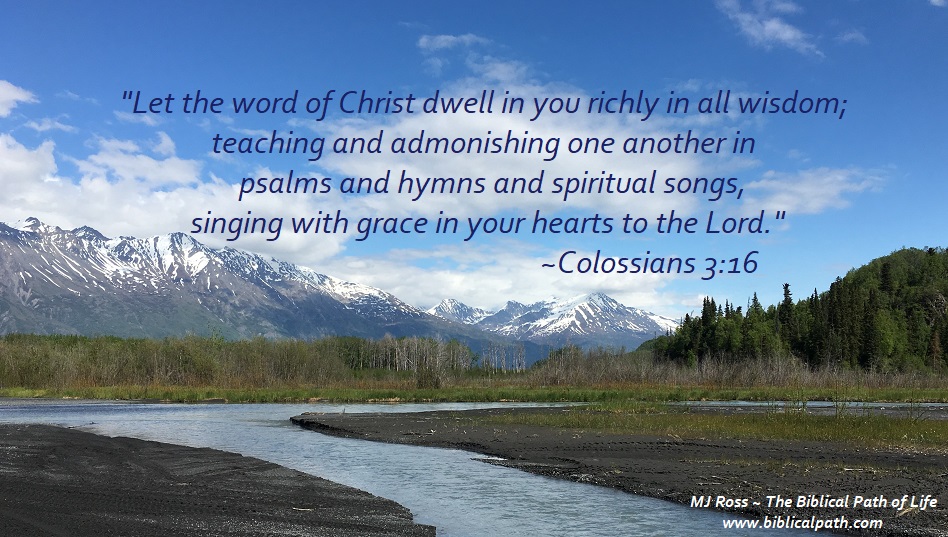
“Who is a wise man and endued with knowledge among you? let him shew out of a good conversation his works with meekness of wisdom.”
James 3:13
The book of Proverbs was mostly written by the wisest man, King Solomon. His wisdom came directly from God (see 1 Kings 3:5-15). Remember what God specifically told Solomon. “4. And if thou wilt walk before me, as David thy father walked, in integrity of heart, and in uprightness, to do according to all that I have commanded thee, and wilt keep my statutes and my judgments: 5. Then I will establish the throne of thy kingdom upon Israel for ever, as I promised to David thy father, saying, There shall not fail thee a man upon the throne of Israel” (1 Kings 9:4-5).
God gave Solomon great wisdom, and He expected Solomon to walk before Him in that wisdom. One of the most memorable recollections of this wisdom, is when the two women came before King Solomon, wanting him to resolve the issue of the baby (see 2 Kings 3:16-28). After Solomon’s judgment, “And all Israel heard of the judgment which the king had judged; and they feared the king: for they saw that the wisdom of God was in him, to do judgment” (1 Kings 3:28). It did not take long for news of Solomon’s wisdom from God to travel abroad. “And there came of all people to hear the wisdom of Solomon, from all kings of the earth, which had heard of his wisdom” (1 Kings 4:34).
We partially understand the volume of Solomon’s wisdom. “And he spake three thousand proverbs: and his songs were a thousand and five” (1 Kings 4:32). Yet with all of the wise words Solomon knew, spoke and wrote for all generations to read, he was a foolish man. Solomon knew the wisdom of God, yet he lived as a foolish man.
King Solomon had many wives but only one son, Rehoboam. Rehoboam became a foolish king. His father, Solomon, had given him much instruction and even wrote most of the book of Proverbs to teach him how to be wise. The phrase “my son” is found twenty-three times in the book of Proverbs. Remember how the book begins. “1. The proverbs of Solomon the son of David, king of Israel; 2. To know wisdom and instruction; to perceive the words of understanding; 3. To receive the instruction of wisdom, justice, and judgment, and equity; 4. To give subtilty to the simple, to the young man knowledge and discretion. 5. A wise man will hear, and will increase learning; and a man of understanding shall attain unto wise counsels: 6. To understand a proverb, and the interpretation; the words of the wise, and their dark sayings. 7. The fear of the LORD is the beginning of knowledge: but fools despise wisdom and instruction” (Proverbs 1:1-7). We now understand the purpose of this book.
What was Rehoboam to do? “My son, hear the instruction of thy father, and forsake not the law of thy mother” (Proverbs 1:8).
Have you ever considered the fatal flaw in Solomon and Rehoboam’s situation? King Solomon told his son all of the things he needed to know in order to be a wise man who would become the king of God’s people, Israel. Yet, King Solomon did not live out the principles in his life that he taught his son. When reading about Solomon and his kingdom, he did not lead God’s people wisely. King Solomon was much like a slave driver to God’s people, whereas his father, David, was more like a shepherd who led Israel. That became evident when Rehoboam took over the kingdom at his father’s death. “Thy father made our yoke grievous: now therefore make thou the grievous service of thy father, and his heavy yoke which he put upon us, lighter, and we will serve thee” (1 Kings 12:4). Solomon had made a critical mistake as he ruled God’s people. He spoke God’s wisdom, but he did not live by God’s wisdom.
What can one learn from King Solomon’s mistake?
There is a famous saying that most people have heard: “Actions speak louder than words.” Understanding how Rehoboam’s life turned out, one can fully recognize that he saw what his father did, and he ignored what his father taught him.
Many parents today do the same thing with their children. Most want their children to live a better life than they did, so they try to teach them good things. Often they teach them biblical principles by which to live. However, if the parents do not live by those biblical principles and instead do what they tell their children not to do, what do you think the children are going to do? Listen to what their parents say? Or do what their parents do? “Who is a wise man and endued with knowledge among you? let him shew out of a good conversation his works with meekness of wisdom” (James 3:13). Christians must live a lifestyle (conversation) revealing God’s wisdom in their lives.
There is another famous saying: “What a parent does in moderation, the child will do in excess.” Have you ever considered that your behavior in front of your children speaks louder than your words? In the case of Solomon and Rehoboam, it appears that Solomon’s actions spoke much louder than his words.
Rehoboam will forever be known as the foolish king whose kingdom was divided.
Have you chosen to tell your children the biblical principles by which they are to live?
Or,
Have you chosen to also live by biblical principles before your children and others?

